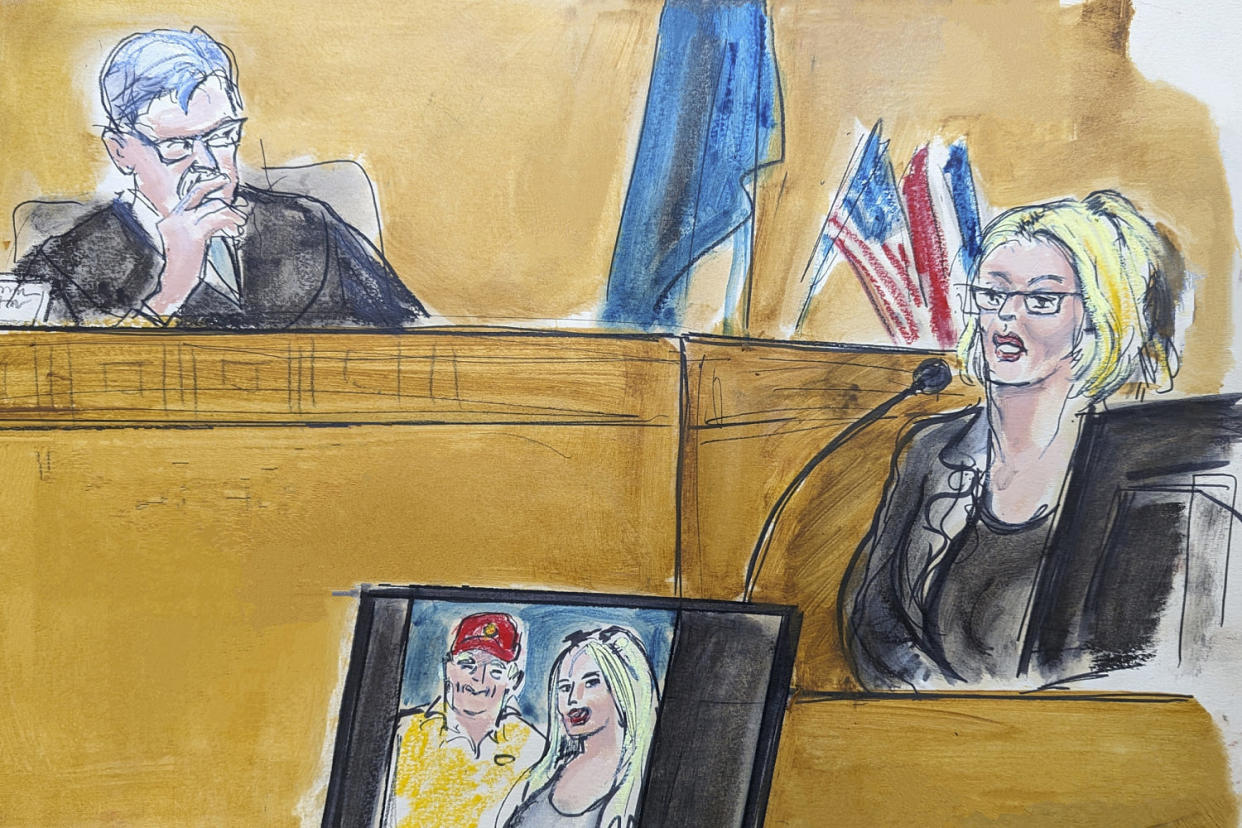Opinion | There's a reason Stormy Daniels' cross-examination was so aggressive

- Oops!Something went wrong.Please try again later.
- Oops!Something went wrong.Please try again later.
The cross-examination this week of Stormy Daniels at the New York criminal trial of Donald Trump has been called “aggressive,” and “heated.”
Which it was. But that’s what cross-examination is. Cross-examination doesn’t always have to be aggressive and heated. But sometimes it is. And sometimes it needs to be.
The Supreme Court has long said that the constitutional right of confrontation is a “bedrock procedural guarantee” governing how witnesses give testimony in criminal trials: “It commands, not that evidence be reliable, but that reliability be assessed in a particular manner: by testing in the crucible of cross-examination.” Note the justices’ use of the word “crucible” here, a word that can mean literally a container heated to tremendous temperatures in order to melt metal.
Sometimes the cross-examiner doesn’t need to get overly combative. For example, Trump’s defense didn’t need to get contentious with Gary Farro, the former private banker for Michael Cohen and a critical witness for the prosecution. Or Hope Hicks. Or Rhona Graf.
Stormy Daniels, on the other hand, was always going to be a tough cross-examination.
Daniels is an adult film star who has made conflicting public statements in the past about whether or not she had sex with Trump (although it seems very likely that she did). Daniels also starred in the “Make America Horny Again” tour to profit from having sex with Trump, and admits she hates the former president.
On cross-examination, against a hostile witness, the attorney is permitted to use leading questions. This means the attorney is basically testifying for the witness, and then asking the witness to confirm their statement. Most of the time, the answer to a leading question is “yes” or “no.” But not all yes/no questions are leading questions.
For example, an attorney might ask: “You were going to make lots of money and negotiate a book contract from your story of sex with the president, correct?”
If the witness answers “yes,” then the lawyer basically testified for the witness, and the witness has confirmed that testimony is correct.
Leading questions are considered so devastatingly effective, that they are generally only permitted when the witness is hostile. Daniels was a witness adverse to the defense, so cross-examination is permitted.
An effective cross-examination requires both a lot of preparation and a lot of improvisation. You can’t write a two-person script when the other person is unwilling to read their lines.
And it turns out that Daniels is a very specific type of witness on cross-examination: someone who will not concede a single point. This kind of witness refuses to answer questions "yes" or "no" because they know that’s what the lawyer wants. And that’s exactly what she did. I don’t think Daniels answered a simple “yes” or “no” to more than a handful of Trump attorney Susan Necheles’ questions.
When a witness fights this hard on every question, a few things can happen.
First, the witness can totally throw off the cross-examining attorney. This is especially true if the attorney has rigidly scripted out an inflexible cross. But at the same time, the jury can see the witness’ refusal to concede any points as being evasive, and therefore not credible. Both things can be true at the same time.
Some legal experts and court watchers saw Daniels as holding her own against mean-spirited questions from the defense. Maybe she did. But a witness is supposed to answer the questions asked. Daniels, for the most part, did not answer the questions asked. By that measure, she was not a terrific witness. How the jury perceived her testimony, and by extension her credibility, remains to be seen.
This article was originally published on MSNBC.com

